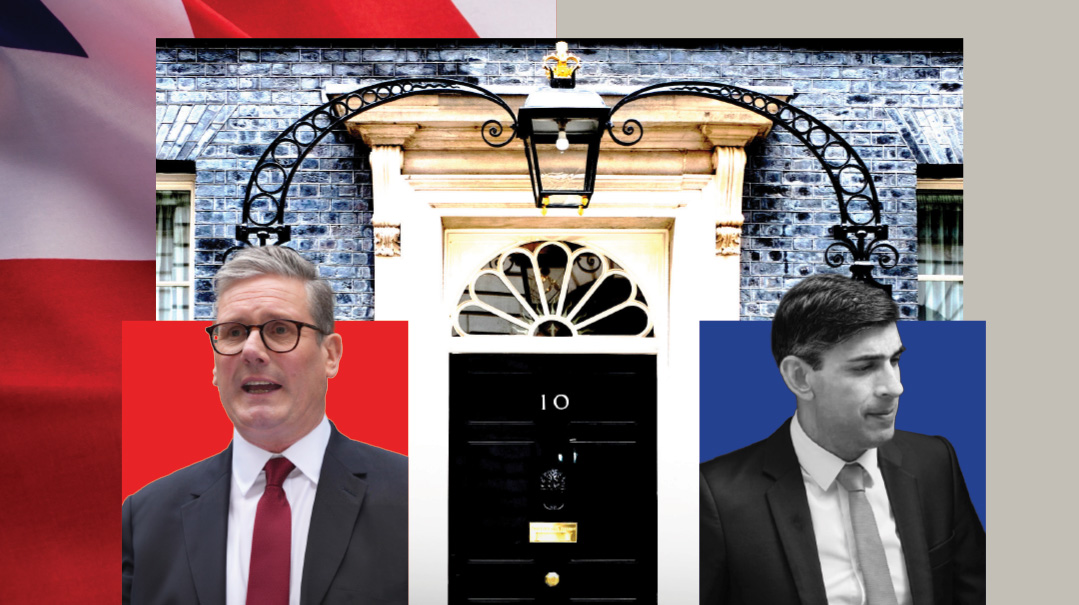A Duty to Die?
| December 3, 2024One of the most controversial and consequential laws in modern history

PHOTO: IMRAN KHAN'S PHOTOGRAPHY
L
ast week in London, a packed House of Commons debated on and voted for one of the most controversial and consequential laws in modern history. The Assisted Dying Bill for Terminally Ill Adults proposes to enshrine in law the right for people over 18 with a medical prognosis that gives them less than six months to live, to request to end their own life.
The bill, which was proposed by a non-government MP, was a free vote — i.e., MPs could vote how they liked rather than along party lines. It divided the government, MPs, and the country, and ultimately passed by a vote of 330-275.
The law presents serious concerns for the frum community. It rides roughshod over the idea of sanctity of life, raises serious risks that those who refuse the option will be viewed as an unnecessary burden, and is another symptom of the secularization seeking to replace traditional norms of morality. Here are six things to know about the bill, its pitfalls, and potential ramifications.
The Private Process
Unusually for such divisive legislation, the bill was brought forward by a backbench Labour MP under a Private Members’ Bill system that picks names in a lottery and grants the winners the opportunity to try and pass a law of their choosing.
Nikki da Costa, director of legislative affairs under former Prime Minister Theresa May, has pointed out that typically, such bills are relatively consensual, such as a tweak to a criminality threshold for a serious offense. This is to ensure that the backbench MP, who lacks the disciplinary mechanisms the government has at its disposal, can marshal enough votes to get it passed. It’s also because backbench bills get far less scrutiny and debating time than bills put forward by the government, and to try to pass a divisive bill under a relatively rushed process would raise serious questions.
The Devil’s in the Details
To qualify for assisted dying, patients would need two doctors to confirm that they have less than six months to live, signed off by a High Court judge, who would ensure that the patient has not been coerced in any way in arriving at this decision. Any coercion detected would be a serious criminal offense and carry a steep prison sentence.
But many questions remain, such as whether the service would be private or state-provided, where the resources will come from, and how already-overstretched courts will be able to allocate sufficient time to cases of such gravity. Adding to the confusion is the fact that the two ministers responsible for implementing the bill, Health Secretary Wes Streeting and Justice Secretary Shabana Mahmood, are both vocal opponents.
Furthermore, the law will only apply in England and Wales, so expect an influx of terminally ill patients from Scotland and Northern Ireland wanting the same choice.
The Ayes
Though the Cabinet was instructed to maintain a stance of neutrality, some had previously aired their views on the topic, most notably Prime Minister Keir Starmer, who’d been a vocal backer of assisted dying when it was last debated in 2015. He was joined in the “yes” lobby by most of the Cabinet, hordes of progressive MPs, socially liberal Tories, and some libertarians, who believe in maximum individual freedom and support giving people more choice.
There were also some skeptical supporters who want to see changes made in the next stages of the process to justify their support at the bill’s final vote. As for the public, recent polling showed 65 percent were in favor of the move, but 75 percent don’t think the National Health Service is in a state to provide it.
The Nos
Health Secretary Wes Streeting was the most prominent Cabinet member to break ranks and express his opposition to the bill on practical grounds, given the state-funded National Health Service is at a breaking point. As a practicing Muslim, Justice Secretary Shabana Mahmood had previously expressed her opposition and warned it would become a “state death service.” Business Secretary Jonathan Reynolds, a practicing Christian; Deputy PM Angela Rayner; and Foreign Secretary David Lammy were also in the “no” camp. Most Conservatives voted against, as did former Labour leader Jeremy Corbyn and the “Gaza 5,” the five Muslim independent MPs who were elected in July exclusively on the Israel-Palestine issue.
The NHS Angle
Between a quarter and half of doctors are opposed, as is the Association of Palliative Medicine, underscoring Streeting’s concerns. With the NHS currently unable to provide quality end-of-life care, the bill’s critics argue that patients are not being offered a real choice between palliative care and an early death; inadequate care will compel patients to choose the latter. Hospices in the UK are only one-third state funded, severely limiting the patients they can service.
Then there’s the worry that patients who refuse assisted dying will be made to feel like a burden on a crumbling service, on which the heaviest burden is indeed the elderly and terminally ill. Add the question of where in the system there’s capacity for doctors to assess patients for assisted dying eligibility, and you have a toxic cocktail of ethical dilemmas that will only intensify if the bill goes into effect.
Added Nightmares
For the Torah-observant community, these developments are deeply worrying. In a society where religion is increasingly viewed contemptuously as a barrier to progress, patients in a health care setting may find themselves in an environment hostile to their most fundamental beliefs. Patients with grim prognoses are in a particularly vulnerable position already; having to battle a system that considers prolonging life an active choice would be an added nightmare. The fact that the weeks leading up to the vote were dominated by debate over whether religious belief was a legitimate motivator on how to vote on a conscience issue speaks volumes about how the tone of debate has shifted in the UK.
(Originally featured in Mishpacha, Issue 1039)
Oops! We could not locate your form.







